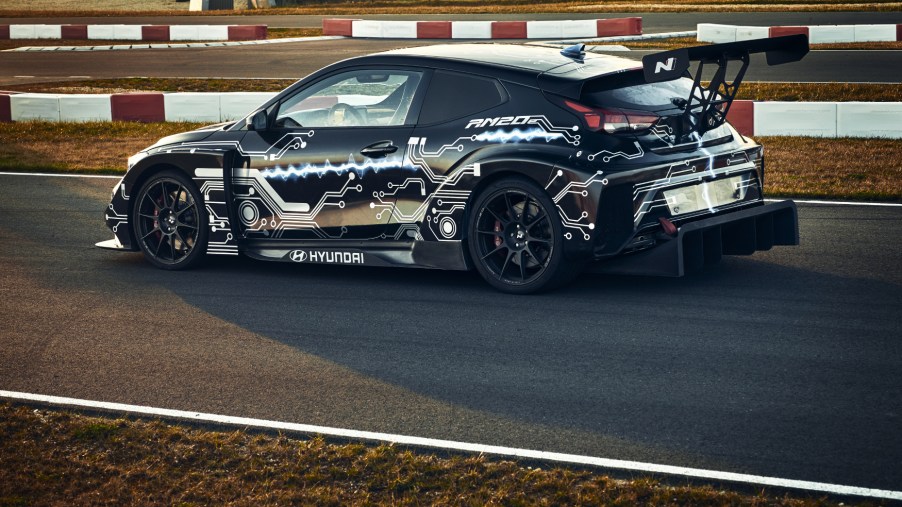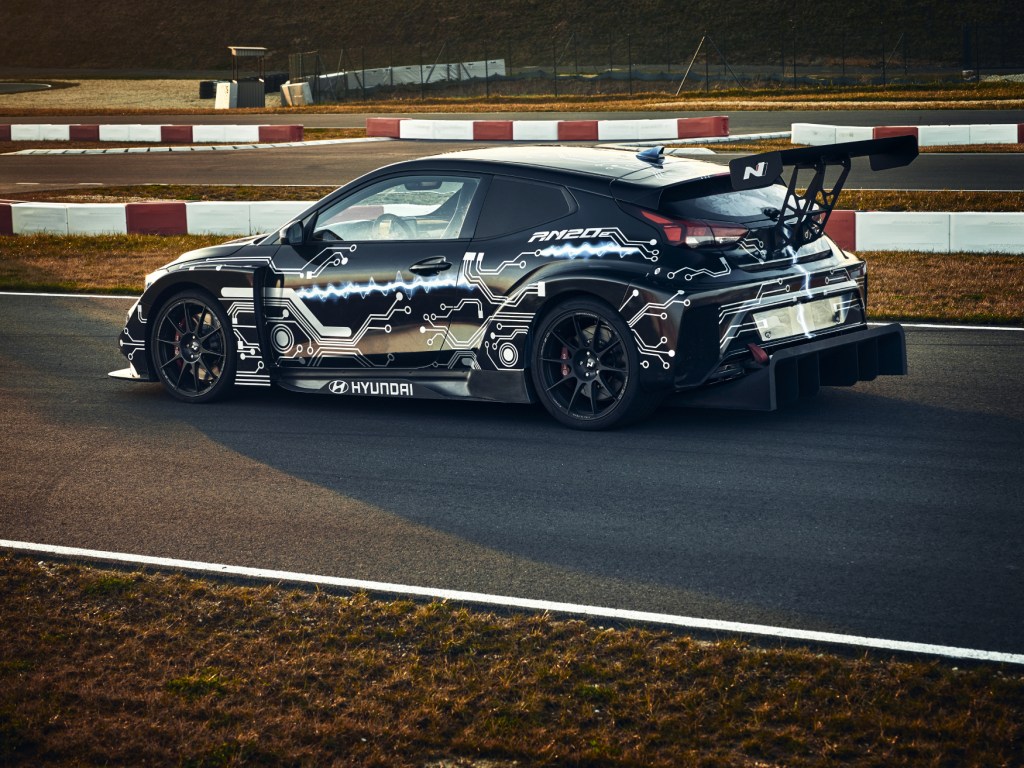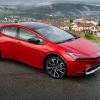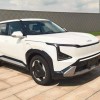
Unveiled: The Hyundai Veloster Concept Electric Race Car
You won’t be able to drive it, but you’ll want to. The Hyundai Veloster concept all-electric race car – dubbed the RM20e – delivers the performance of gearhead’s dreams. And before you ask, no, this Veloster doesn’t have a third door.
Hyundai’s had success with concepts in the past. Now, this eco-conscious Veloster track car arrives on the heels of the successful Veloster N eTCR, which was Hyundai’s first foray into the world of all-electric race cars. Hyundai’s press release announcement of the vehicle credited the manufacturer’s partnership with (and recent investment in) Rimac Automobili as a significant factor in the development of the RM20e.
The Hyundai Veloster isn’t the driving sales machine of the auto manufacturer’s production vehicle lineup. However, the Veloster N plays a vital role in R&D and Hyundai Motorsport.
“The RM20e sports car prototype clearly signals future electrified brand aspirations for Hyundai’s performance N brand, moving N into the prestigious genre of supercar-level performance,” said Thomas Schemera, Executive Vice President and Head of Product Division at Hyundai Motor Group via the company’s press release.
Eyes will certainly be glued to the Hyundai RM20e to see how it affects the future of all-electric race cars and the Hyundai Veloster N itself.
This Hyundai Veloster concept races toward sustainability

Hyundai is diversified in zero-emission vehicles at the production level, featuring PHEV, HEV, BEV, and FCEV models. Now, its goal is to bring a similar line of forward-thinking to its high-performance vehicles.
The Hyundai Veloster concept all-electric race car takes a page out of the old-school automotive playbook by utilizing a mid-mounted motor layout. This 800-volt electric motor kicks out an equivalent of 810 hp and 708 lb-ft of torque. Additionally, it can reach a top track speed of 155 MPH.
Meanwhile, Hyundai said it expects this revolutionary rear-wheel-drive track car to rocket from 0-62 MPH in fewer than three seconds and from 0-124 MPH in just 9.88 seconds. This race car is also astonishingly quiet, as Hyundai claims the RM20e only emits “daily-driver noise.”
Can race-car success help propel the street-legal Hyundai Veloster?
The Hyundai Veloster all-electric concept race car could also provide some secondary benefits to its consumer-based brother. The quirky three-door Veloster coupe stands out on the road but not in sales.
According to GoodCarBadCar.com, the Hyundai Veloster peaked in popularity in 2016, with over 30,000 sold in the U.S. However, its sales numbers sharply declined in the following years – 12,658 in 2017, 10,871 in 2018, and 12,849 in 2019. The 2020 Hyundai Veloster’s figures don’t look promising, as it’s only sold a reported 5,178 during this already-difficult year.
The Hyundai RM20e’s ingenuity and projected success could easily translate into piqued interest in the struggling production-line Hyundai Veloster.
It remains to be seen if this is the case, but creating an all-electric race car based on an already established unique model can be seen as a strategic move. Its success on the track and in R&D is likely Hyundai’s primary goal. However, bolstered sales of the street-legal Veloster would likely be a very welcomed side effect.
A glimpse into the future of racing
Only time will tell if the Hyundai Veloster concept all-electric race car will be the new darling of the auto racing world. With its eco-conscious concept, the Hyundai RM20e is at the forefront of cutting-edge technology, and its performance-enhancing features catapult it into a model to be watched.


